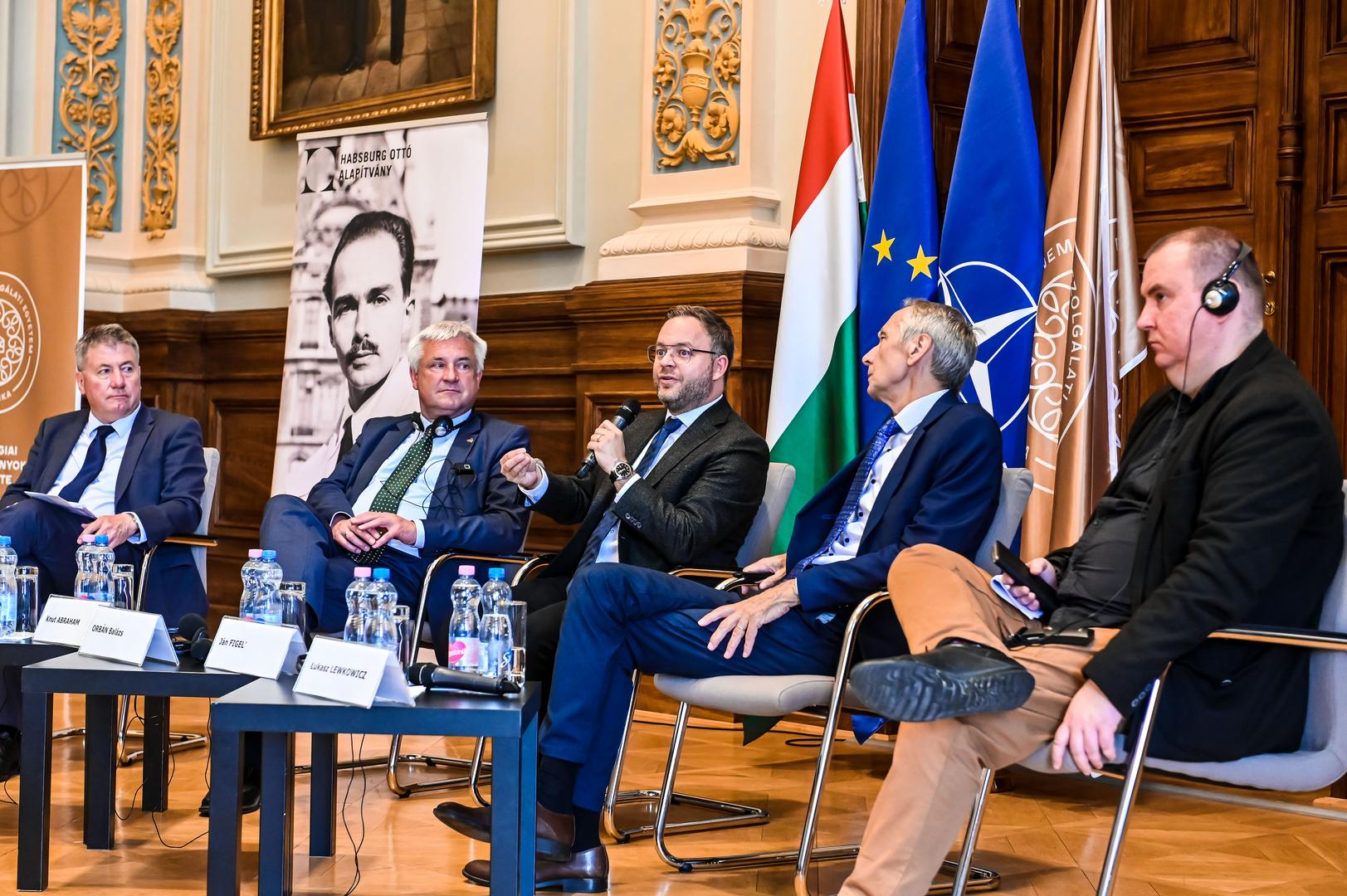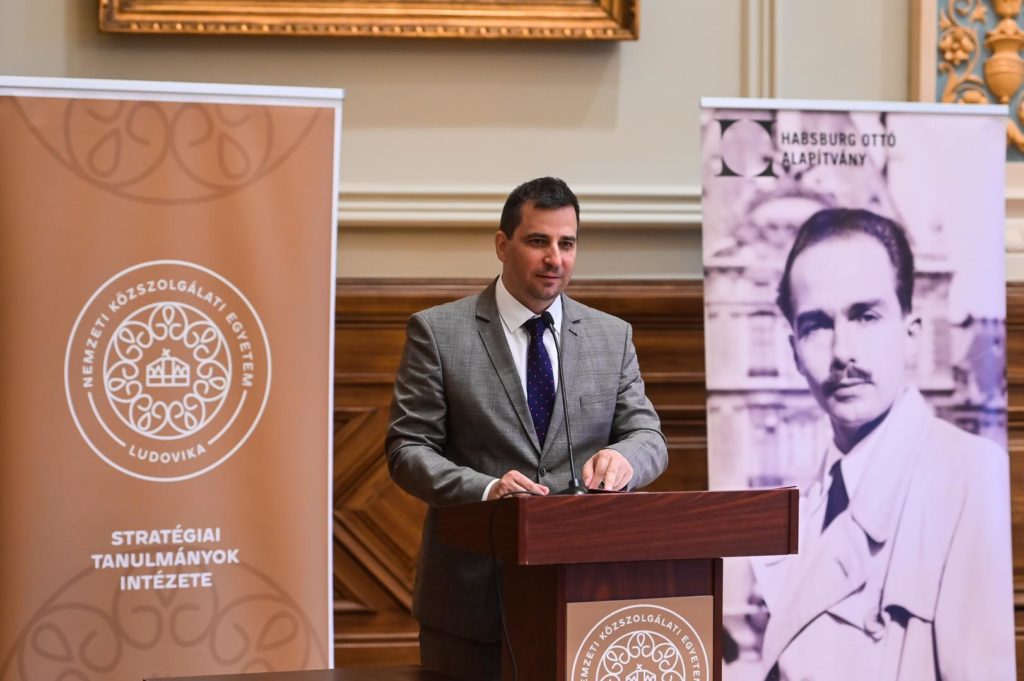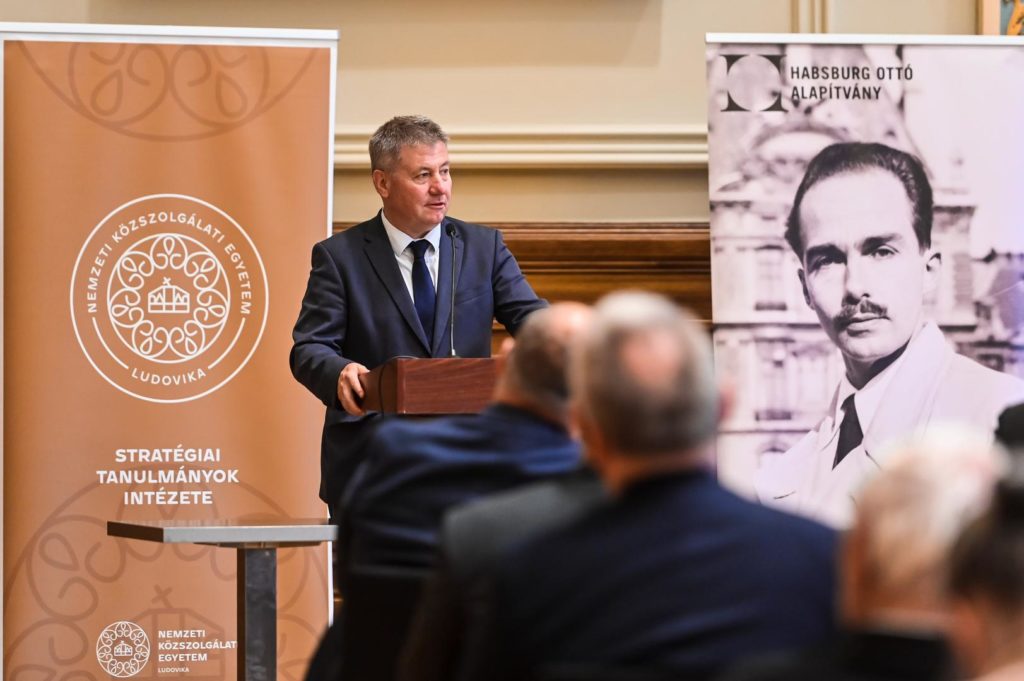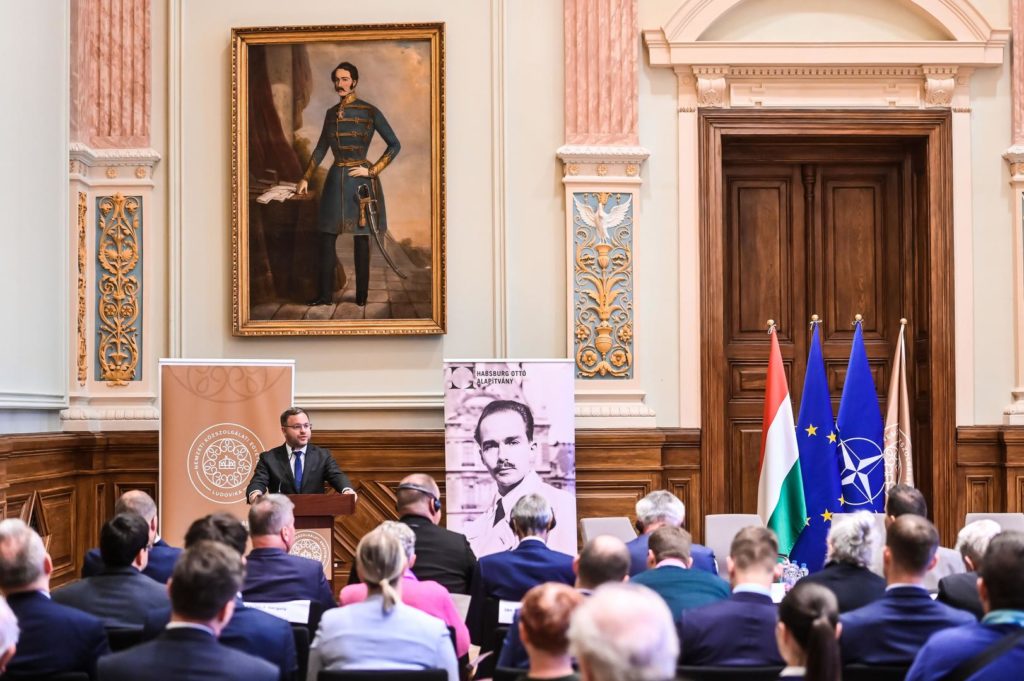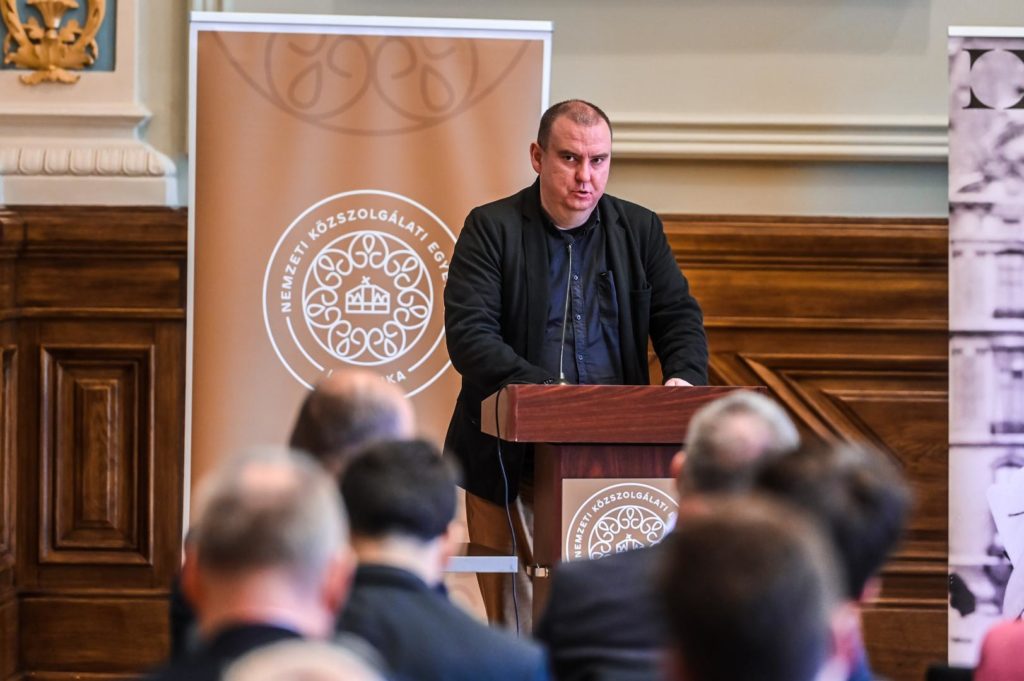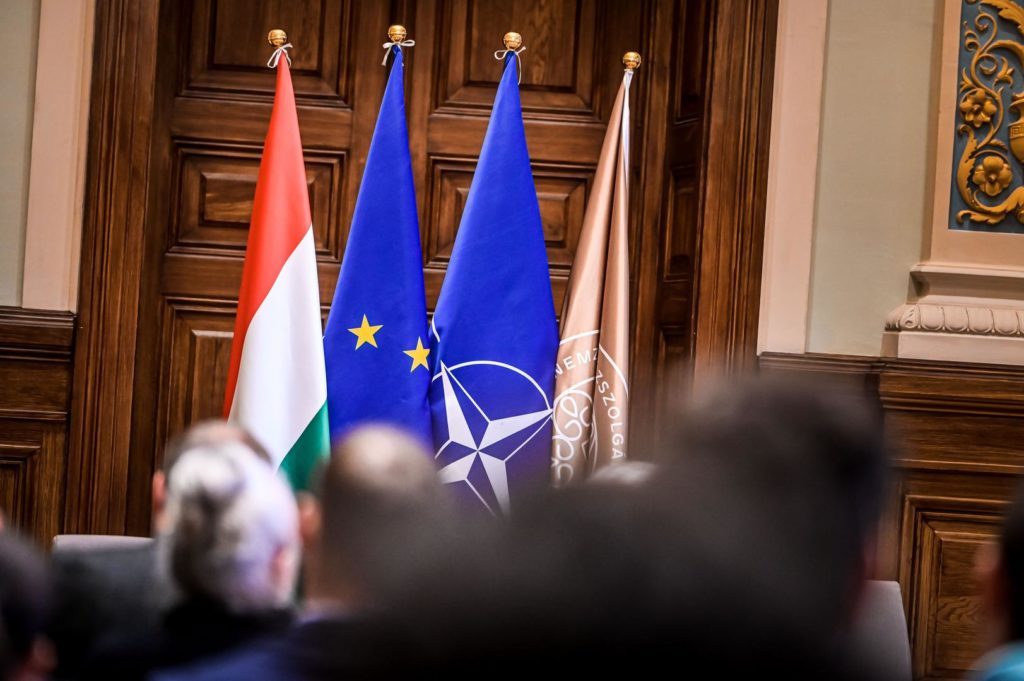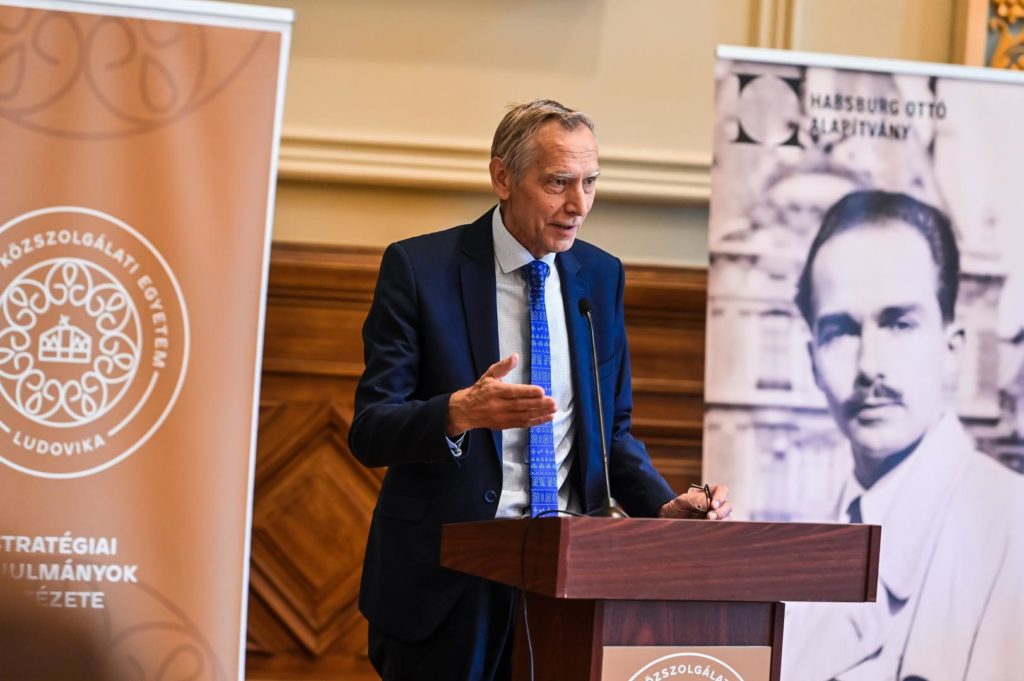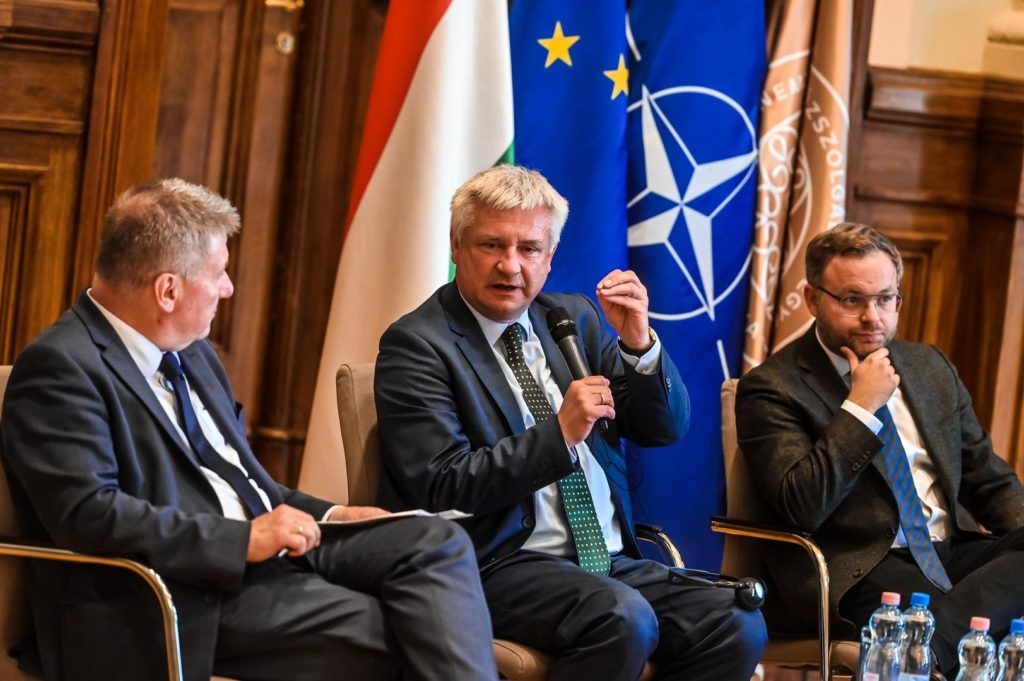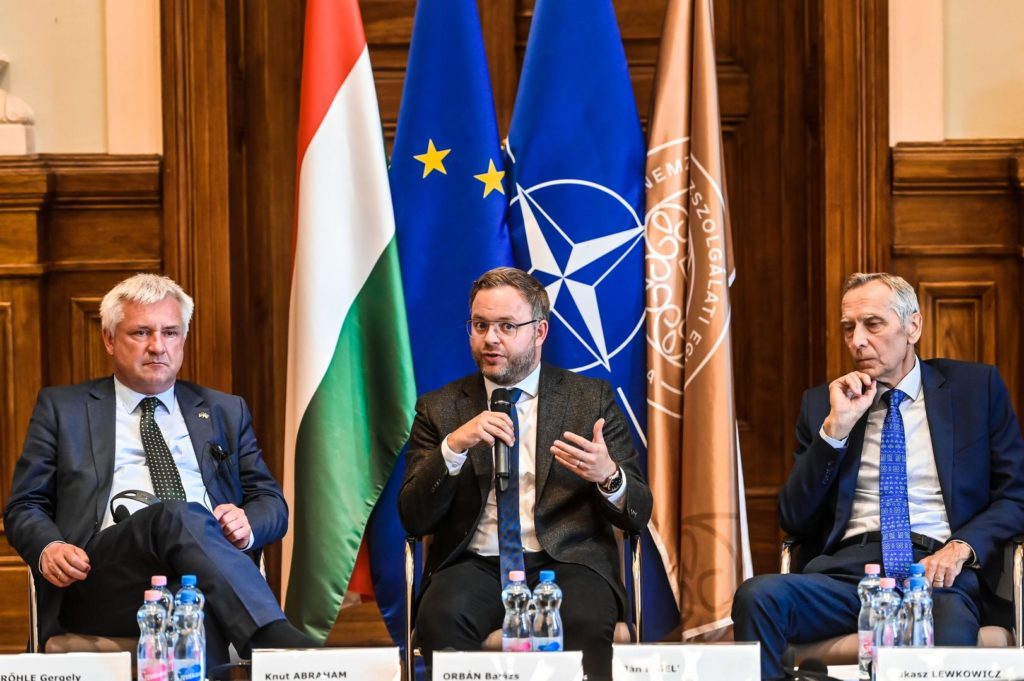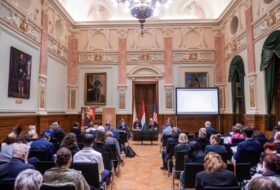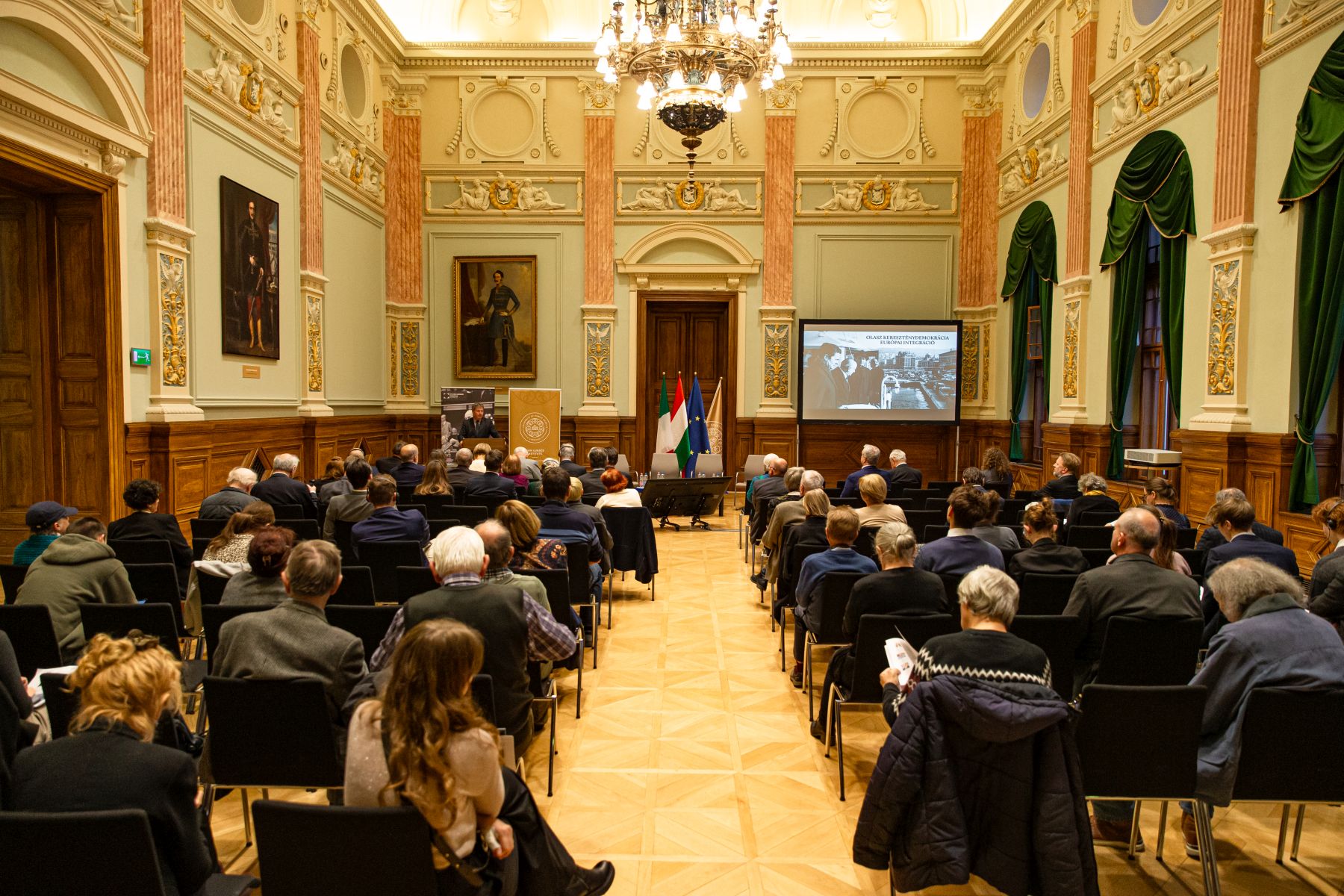The common past and cultural identity of the Visegrad countries is the basis of a sense of belonging that encourages constant dialogue and joint strategic thinking, the Rector of the University of Public Service pointed out in his speech. GERGELY DELI stressed that in the current economic and political crisis, we need this discourse more than ever, and that listening to Germany, a key player in the region, is essential to formulate positive messages. He recalled that our events on the anniversary of the Élysée Treaty and on Europe Day were held in a continental context, while the current one is looking for solutions in a regional context.
GERGELY PRŐHLE, Director of our Foundation, underlined the importance of continuous communication between parties with different views. As he said, being Central European is a cultural and historical narrative of which Germany is an integral part. Awareness of this deep interconnection also gives a different perspective to the current political controversies, with all parties feeling a sense of responsibility towards the region. Otto von Habsburg made the region a priority in his work in the European Parliament and followed the fate of the peoples of the former Monarchy throughout his life.
The first speech of the conference was delivered by BALÁZS ORBÁN, Political Director of the Prime Minister, who had presented a comprehensive strategy for the period ahead for Hungary in December 2022. In his view, the world’s economic and political system, which had existed since 1945, has undergone fundamental changes in the last decade. Technological competition appears to be levelling out at the expense of the hitherto dominant West: in terms of productivity, raw materials and energy carriers, demography and research and development resources, the world has caught up with or overtaken the sunwest civilisation, which only retains – for the time being – a significant edge in the military industry. A multipolar world has emerged in which the West is/will be inescapable, but not the only dominant player. At the same time, Hungary – together with Central Europe – still has an interest in realising its own goals in this “civilisation project”.
According to Balázs Orbán, the dividing line between Hungary and Western thinking today is in the perception of identity (immigration, family, nation, liberalism) and geopolitics (how fortunate it is to align with the interests of a single superpower). He argues that in the current troubled times, it is more important to cultivate common values and interests than to emphasise differences, as it is unity that makes us strong, not fragmentation. His proposals are the following: as Europe has always been strong in its diversity, the identity of individual states should not be questioned; the enlargement of the Union should be continued (Western Balkans, Ukraine); an independent defence force should be created to protect the region from military threats, even without the help of the United States; to increase our competitiveness, including a – prudent – process of transition of the economy to renewable energy sources; finally, in the face of progressive left-wing ideology, to hold on to the Christian values that have helped people here to survive for centuries.
In order for Berlin to respond to the challenges of the turn of the century (Zeitenwende), it must break with the paradigm of Ostpolitik, said KNUT ABRAHAM, CDU Member of the Bundestag. The former diplomat and colleague of Otto von Habsburg described German foreign policy, which had lost direction in the wake of the Russian-Ukrainian conflict and the energy crisis, as having recently accumulated a serious trust deficit on the part of Central Europe. In the absence of geographic and historical knowledge – which, unfortunately, is the case for most decision-makers in Berlin – it is difficult to define a strategy, he said. Abraham is also certain that strengthening the continent is unthinkable without reforming the EU institutions – but this must be a shared responsibility of member states, not a task for any one country. It is essential to ensure that the processes are transparent and clear, without which the Parliament will not have the support of the continent’s citizens to carry them out.
In his presentation, ŁUKASZ LEWKOWICZ discussed the potential of diverse forms of regional cooperation to at least partly counterbalance adverse economic and political developments. The Senior Analyst at the Institute of Central Europe in Lublin, highlighted the positive aspects of the Three Seas Initiative (TSI) and the infrastructure investments planned and implemented by the countries of the Weimar Triangle, in addition to the Visegrad Cooperation. He also identified German engagement as a key element, which he said the region would also need in the political arena – at regional level this could complement transatlantic engagement. At the same time, he said it was important that the TSI does not exclude the active involvement of either the EU or the US.
“Europe begins at home, not in Brussels” – JÁN FIGEL’, former Slovak Minister, emphasized in his speech. The former EU Commissioner and Special Envoy used the metaphor of the House of Europe to illustrate the primacy of good neighbourliness, but where we must be active in a continuous way, going beyond the consumerist approach, to offer an attractive model to those thinking of moving in. He warned that the three world wars of the 20th century (he included the Cold War) had started on our continent and that we were on the verge of escalating into another world war. The division of Central Europe would ultimately mean a failure of integration.
The presentations were followed by a roundtable discussion on the pressing issues of subsidiarity and centralisation, further enlargement of the Union and security policy.
Photos: Dénes Szilágyi (NKE)
